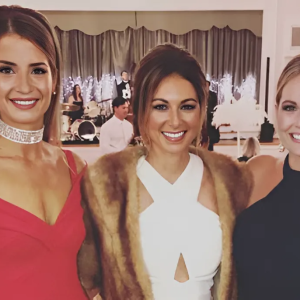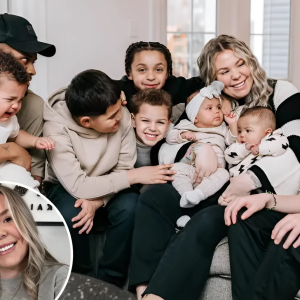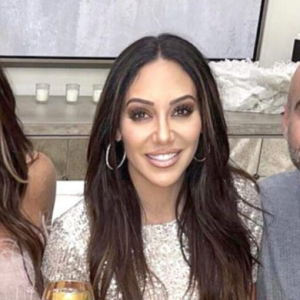Fact checked by Sarah Scott

I can only imagine what was going through my 5-year-old son’s head when he walked in on me in the bathroom and saw blood—not that he’d knocked or anything. “Are you OK?” he asked timidly, concern awash on his face. I was of course, since he was merely witnessing my period, but he didn’t know what was going on.
I spent the next few moments explaining that this happens to mommies, and that I’m fine, and not in pain (lie!), and that he didn’t need to worry. We’d get to the birds and the bees and the whole release of the egg scenario a few years down the road. For now, I just wanted to assuage any of my little guy’s fears and answer a few, basic questions in an age-appropriate way, including when, wide-eyed, he whispered, “Will I start bleeding?”
Meanwhile, I could have told my son to please leave the bathroom, and not explain any of what was going on, leaving him wondering if something was wrong with me. But like me, another mom with a modern take on talking about the body, Kailyn Lowry, recently opened up about why she thinks normalizing getting your period is important, with all your kids.
Lowry, of Teen Mom fame, has seven littles to look after, including twins Verse and Valley, and a toddler, Rio, whom she shares with her boyfriend, Elijah Scott. Sons Creed, 3, and Lux, 6, with ex, Chris Lopez, as well as Lincoln, 10, whose dad is Javi Marroquin, and Isaac, 14, with Jo Rivera, round out her brood.
:max_bytes(150000):strip_icc():focal(689x299:691x301)/Kailyn-Lowry-1-00cd4b5dc4214061a2df9fc5176e8f44.jpg)
She recently took to TikTok to share her experience getting her period unexpectedly while on vacation with her kids. “Now, normally, I wouldn’t freak out about this, but I have four of my boys with me by myself,” the former reality star, who has polycystic ovarian syndrome (PCOS), explains in the video, which is captioned, “Teach boys!”
Lowry then continues about her sons, “So thankfully, they know what to look for if I were to have a little Aunt Flow emergency. Isaac or Lincoln could go to the store for me and grab something.”
Finally, the mom of seven adamantly states, “In the event we were out and about, I would have no shame asking my oldest son to check me because sometimes you just don’t know if you leak through things.”
Commenters largely praised the star mom for her efforts to shed the veil of secrecy and discomfort that can surround periods, especially when you have sons. “It’s a fact of life and nothing to be embarrassed about,” one person said.
Someone else pointed out that many boys grow up to be partners to menstruating people, and they will be more thoughtful as a result of being educated about bodies and health.
Experts agree it’s important to talk to all kids about menstruation, whether they experience it or not.
“It is a good topic of discussion to have with your kids before they hear things that may or may not be true from their friends,” confirms Ari Brown, MD, an Austin, Texas-based pediatrician and founder of the Baby 411 book series.
The key is to make talking about periods developmentally-appropriate. “Your 3-year-old does not need to know that women bleed every month due to ovulation and not fertilizing the egg,” Dr. Brown tells Parents.
She suggests that while you’re on the topic of periods, a discussion about private parts should be worked in. For instance, you might explain that mom’s or sibling’s private parts are their own, are private, and not meant to be exposed. Dr. Brown recommends using real words for private parts, even with preschoolers.
Ultimately, normalizing periods with kids ensures your child will feel comfortable asking questions about their bodies. “By starting the conversation, you are saying to your child that they can come to you; avoiding the topic says to them that the topic is off limits,” Dr. Brown says. She adds that by staying mum about topics like these, “you are doing a disservice to your child.”
A final word? Depending on your child’s age (8 may be a good time to get more specific and real about periods, according to Dr. Brown), her take is this: “I think we can all agree that our kids really need to understand where babies come from, how babies are made, and how to take care of our bodies.”




